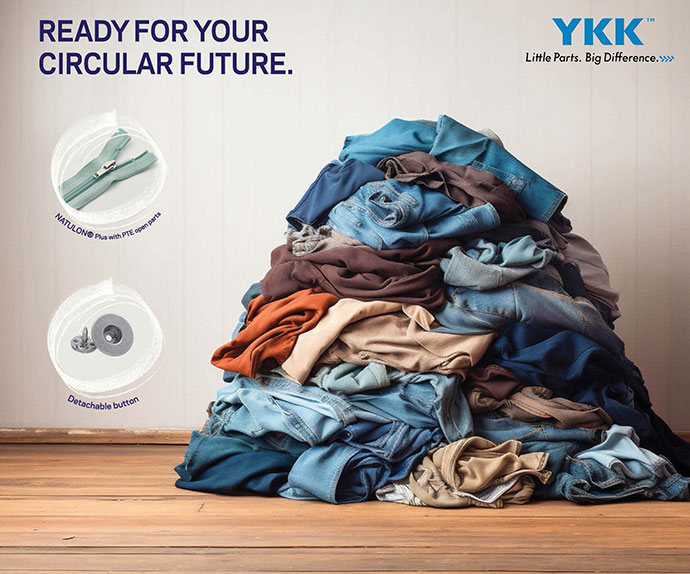YKK Corporation (Headquarters: Chiyoda-ku, Tokyo; President: Koichi Matsushima; hereafter, YKK) will exhibit at the Textile Exchange Conference 2025 in Portugal, held from Monday, October 13 to Friday, October 17, to showcase its products and initiatives that contribute to the realization of a circular economy in the fashion industry.

The annual Textile Exchange Conference brings together global stakeholders from the fashion and textile industries—including brands, supply chain partners, innovators, farmers, NGOs, and academics—to explore solutions for a sustainable future. The 2025 theme, “Shifting Landscapes,” focuses on climate adaptation and systemic transformation.
As an active member of Textile Exchange, YKK is committed to advancing sustainability across the global textile value chain. At this year’s conference, YKK will present its efforts to accelerate the transition to a circular economy, including:
- Zipper and fastening products made from recycled inputs, including textile-to-textile and metal material recycling, contribute to the realization of a circular economy, such as: NATULON®, NATULON® Fiber SourcedTM, NATULON Plus® with Recycled PET Open Parts, and the Recycled Mono-material Detachable Button & Rivet, recipient of the 2025 Red Dot Award in the Sustainable Design category.
- Zippers and fastening products that enable garment repair and recycling, such as Revived Renewal Components.
- Helping to enhance supply chain transparency through technologies like TouchLink®
- Initiatives to reduce environmental impact across the entire product lifecycle
- Progress updates on long-term goals under the “YKK Sustainability Vision 2050”
YKK is focusing on the development of products and technologies which contribute to the circular economy – where materials and products are used for as long as possible and continuously circulated – to achieve the “YKK Sustainability Vision 2050.” Going forward, YKK will continue to promote the reduction of environmental impact and make contributions to the circular economy via initiatives such as using recycled materials, designing products with the assumption that they will be repaired and recycled, and recycling waste into new resources.
Source: YKK

